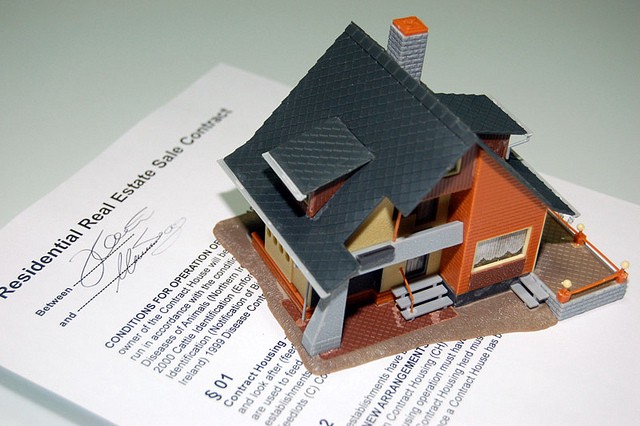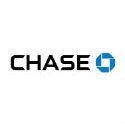What to Look For in a Real Estate Agent


Sponsored by Chase Mortgage Banking. Review their resources to help you find and finance your home.
Choosing the right real estate agent can often make the difference between a smooth real estate transaction and a stressful one. A good agent stands up for your rights and needs, whether you’re looking to buy, sell, or both. And a really good agent can save you a lot of money during the process.
So what do you look for to find that great real estate agent? What do you look for? You want to start with the license — and not all are the same. The Washington Post has a good summary:
A salesperson license is an entry-level license. A person holding a broker’s license may own a real estate brokerage and may hire other licensees to sell real estate. An associate broker is someone who has completed the pre-licensing requirements for obtaining a broker’s license and has passed the broker’s exam, but continues to work as a salesperson for a broker rather than operating her own business.
Each of these licenses qualifies a real estate agent to sell real estate, but agents with brokers’ licenses have more experience and training than agents with salesperson licenses. This does not necessarily mean that an agent with a broker’s license will be better for your needs than an agent with a salesperson’s license; interpersonal skills, for example, are often just as important as licenses earned.
You should also pay attention to any additional credentials your agent may have received. Many of these are given out by the National Association of Realtors, so check to see if your agent is a member. An ABR, or Accredited Buyer’s Representative, is given to realtors “who focus on working directly with buyer-clients at every stage of the home-buying process.” A CRE, or Counselors of Real Estate, can “provide seasoned, expert, objective advice on real property and land-related matters.” The National Association of Realtors lists 23 different designations and certifications that Realtors can earn, denoting expertise in everything from green properties to short sales. Learn about the different real estate certifications and look for agents that have the certifications you need.
It’s also important to look for a real estate agent who knows your neighborhood. US News and World Report’s 9 Red Flags to Watch For When Picking a Real Estate Agent explains why:
Finding a neighborhood expert is especially important in areas where moving a block can raise or lower the value of a home by $100,000. An agent who specializes in a neighborhood may also be in touch with buyers who are looking for a home just like yours or sellers who haven’t put their home on the market yet.
Lastly, figure out whether your agent will be able to both guide you through the process and advocate on your behalf. One of our Billfold readers worked with a real estate agent who was not skilled at meeting the needs of a first-time homebuyer, for example. Ask for references and talk to people who have worked with this agent before. Are they happy with their purchase? Did it go as expected, or were there unpleasant surprises? Was their agent good at helping them navigate the negotiation period, and was the agent able to help them buy or sell for a price that was both fair and met their financial goals?
Of course, a good agent brings more to the table than their license and negotiating skills. I asked some of our Billfold readers what people should look for in an agent, and their responses all spoke to the importance of interpersonal skills:
We met our agent when we were looking at houses sans agents. She was showing the home for an acquaintance, and we just clicked. We didn’t end up buying until almost a year later and had met other agents at other open homes, and had friends who were agents, but the rapport we had with her was the best. When we started looking for a home in earnest we could be ourselves when describing what we wanted in a home vs. what were deal breakers. If we weren’t comfortable with her we might not have been able to voice those concerns properly, and might not be as happy with the house we purchased.

Make sure your agent really understands what you need. I told my agent that I knew nothing about buying my first house and I needed her to treat me like a complete novice. She kept telling me how smart I was and that I was doing everything right, but she let me make some really bad decisions. I don’t know if she just wanted to make a buck and didn’t care what was going on, or if she really did think that my poor decisions were what a seasoned home-buyer would do.

It’s really important to ask for references. Our agent came highly recommended for her ability to come in, assess all the potential a house has to offer, and put that positive spin on it when trying to sell it. Our house is an older house and arguably could use a new kitchen, new bathroom…a new modern look altogether, in my opinion. But in her eyes our house had charm and she actually nearly sold me on the charm to the point where I said “Why do we want to sell again?”

An agent who, understands your needs, knows your neighborhood and has excellent communication skills could turn out to be a better choice than the highly credentialed agent who is difficult to talk to and pressures you to make decisions. In the end, finding a good real estate agent comes down to talking to agents one-on-one, and talking to people who have worked with those agents before. That’s how you’ll get a licensed, skilled agent who is right for you and can help make your transaction as smooth as possible.
Photo credit: Mark Moz
Support The Billfold
The Billfold continues to exist thanks to support from our readers. Help us continue to do our work by making a monthly pledge on Patreon or a one-time-only contribution through PayPal.
Comments